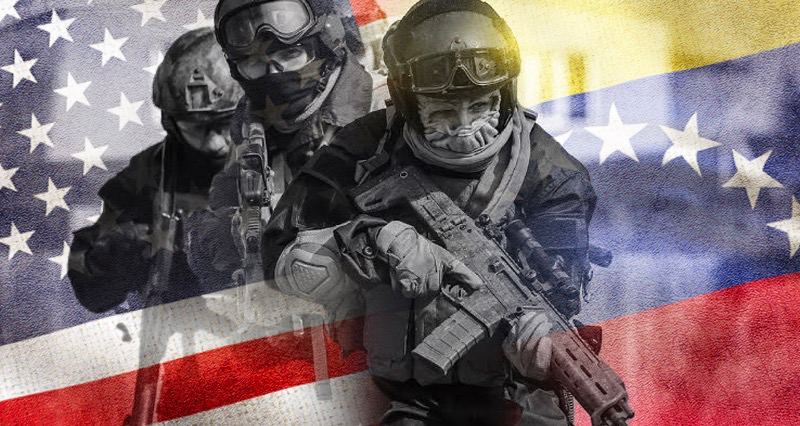By Yunus Soner
Following presidential elections of July 28, the domestic political situation in Venezuela is becoming calmer and calmer day by day. In contrast to that, external pressure on the reelected President Nicolas Maduro, specifically from the United States and the European Union, is mounting.
The Venezuelan Supreme Court confirmed the elections results declared by the National Electoral Council previously, making the results and the victory of Maduro’s official.
The United States has reacted by imposing sanctions on both the National Electoral Council and the Venezuelan Supreme Court. The US Treasury has sanctioned some 16 individuals, one of them being a member of the National Electoral Council. In addition, US authorities have also targeted 5 judges from Venezuela’s Supreme Court.
Claimed president-elect flees to Spain
In the meantime, oppositional candidates Edmundo Gonzalez Urrutia fled to Spain. After being accused of serious crimes, including the usurpation of public duties, document falsification, instigation of disobedience and system sabotage.
Urrutia was part of the Vente Venezuela organization, which had published, illegally according to Venezuelan laws, claimed election tallies after the election. According to Venezuela’s constitution, only the National Electoral Council has the right to publish any results. Urrutia rejected appearing before the court and left the country towards Spain on September 7.
The president of the Venezuelan parliament, Jorge Rodriguez, made a statement regarding the departure of Urrutia. Rodriguez presented a letter that Urrutia had signed in the night of September 7 in the Spanish Embassy in Caracas, Venezuela, where he promises to recognize the judging of the Supreme Court regarding the elections. Rodriguez emphasized in a press conference that it was Urrutia who demanded to leave the country, by also stating that he will not assume any representative role regarding state functions of Venezuela.
This is a clear reference to Juan Guido, who had previously declared himself President of the Bolivarian Republic of Venezuela.
Urrutia later stated he had signed the letter under pressure. Rodriguez responded with an additional press conference declaring that not only had Urrutia signed it voluntarily, but also with his own pencil. Rodriguez also announced to publish voice recordings of his meeting with Urrutia.
After the oppositional candidate’s arrival in that country, the Spanish parliament gathered for a vote to decide who had won the elections in Venezuela. The Spanish parliamentarians by majority voted and decided that Urrutia was the winner of the presidential elections of July 28.
In response to the vote, Venezuela has withdrawn its ambassador from Spain for consultations.
European Parliament votes on who won elections
The European Parliament has cast a similar voting. On Thursday, September 19, 309 parliamentarians voted in favor of recognizing Urrutia as elected president of Venezuela, while 201 voted against and 12 abstained.
In the approved resolution, the parliamentarians rejected the so-called electoral fraud, condemned the persecution of democratic opposition and warned about a new migratory exodus from Venezuela. They called the European Union to do its utmost to ensure that Urrutia can take office on January 10, 2025.
The parliamentarians also urged the European Union to reinstate sanctions against the members again of the National Electoral Council and the to prolong the regime of sanctions in existence.
Blackwater on scene
Meanwhile, Eric Prince also had a reappearance on the scene. Prince is the founder of the US private security firm Blackwater and the former U.S. Navy SEAL. Prince started collecting donations in order in order to organize the opposition against President Maduro.
Prince published a video on social media announcing the end of the Maduro regime soon. The former U.S. military and the staunch supporter of Trump has already assured history of meddling into Venezuela’s affairs. Already in 2019, he promised to organize a paramilitary group. To overthrow President Maduro by force.
In violent acts after the elections, 25 citizens had lost their lives while 192 were injured. 494 aggressions took place against public infrastructure. In recent weeks, the Venezuelan authorities have confiscated different arms transfers into the country.
Venezuela captures 400 rifles, origin is US, says Minister of interior
On September 14, Minister of Interior Diosdado Cabello has presented a load of 400 rifles and guns that were detained in an operation by the authorities. Cabello said that the United States is the origin of the arms load.
The minister has accused the CIA and the Spanish Secret Service of preparing assassination attempts against the President Nicolas Maduro, Vice President Delcy Rodriguez as well as himself. Several people were detained, among them US and Spanish citizens who have ties to U.S. military and the CIA. One of them, Joseph Castaneda, is a Navy SEAL since 2009, stated the Venezuelan minister.
In the meantime, the Venezuelan opposition’s factual leader, Maria Corina Machado, remains in hiding before the Venezuelan authorities. She communicates via Twitter and Western press and promises to topple down President Maduro.
Still, daily life and productive Processes in Venezuela have returned to normal, with the people regularly demonstrating publicly their support for President Maduro. The Venezuelan opposition seems to have lost the ground inside the country and tries to bet on external pressure and threats to gain power in Caracas.

















Leave a Reply